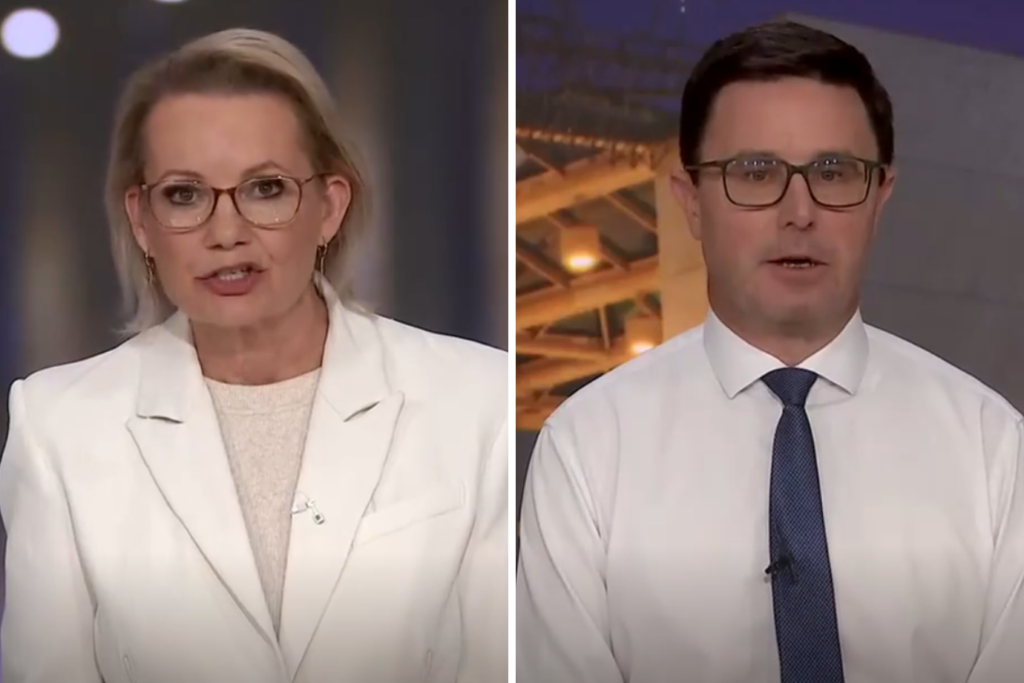Laura Tingle put it succinctly on the ABC’s 7.30 program last night when she said the Nationals are in a “delusional” position amid their breakup with the Liberal Party.
On Tuesday, National Party leader David Littleproud told the media his party would not form a Coalition with the Liberal Party, breaking a decades-old relationship that has given the Nationals a disproportionate influence over national policy.
It comes after the Liberal Party’s defeat of epic proportions at the federal election, where Peter Dutton ran with policies like nuclear energy that appeased the Nationals at the expense of his own party and the public good.
Speaking on Tuesday, Littleproud said the decision to step away from the Coalition came down to disagreements over nuclear energy policy, regional infrastructure funding and supermarket divestiture laws.
Liberal Party leader Sussan Ley said she was not able to commit to these specific policies because her party needed to focus on understanding what went wrong for them at the election before building out their policy platform.
On 7.30, host Sarah Ferguson asked Littleproud if he could honestly say that the decision to split had nothing to do with the Nationals’ disdain for a net zero emissions reduction policy.
“Yes, because our position at the moment is to support net zero,” Littleproud said, denying that disagreement over net zero played a role in the breakup.
Now, as a minor party, the Nationals will lose parliamentary resources and its influential access to shadow cabinet positions. These positions will now be held entirely by the Liberal Party.
Without a reconciliation with the Liberals, there will also be significant electoral consequences for the Nationals at the next election, especially in the Senate where the Coalition runs on a joint ticket.
There are also implications for the LNP in Queensland (which is constitutionally a division of the Liberal Party), where MPs sit across the Liberal and National party rooms in Canberra.
“The Nationals have basically been reduced to a rump minor party in the House of Representatives,” Laura Tingle said on 7.30. “Sussan Ley says the Liberals are the official opposition – well, they might be but they’re pretty redundant for the time being. They were pretty redundant already given their numbers in the house.”
“The basically both consign themselves to being observers in the House of Representatives”.
What does this mean for Labor?
In the short term, the Coalition split gives the Albanese government almost unprecedented power in the parliament, including more negotiating power in the Senate.
It also makes it harder for the Liberal Party to form government from its current position, meaning Labor could quite easily be re-elected in three years’ time.
And while the split leaves the Liberal Party to deal with significant consequences, it does give them space to re-evaluate and take a fresh approach to policy moving forward. Could this be how the Liberals move back to the ‘centre’ of Australian politics? It may be what the party needs if it wishes to win back the urban and metropolitan seats it lost in 2022 and 2025.
Over recent years, the Liberal Party has turned away from its traditional values and instead focused on hard-line culture wars, while drifting away from women, multicultural communities and young people.
Meanwhile, former prime minister John Howard has fronted the media to warn the Liberals and the Nationals to get back together quickly. The longer it drags on, he said, the harder it will be to reconcile.
“If the two parties remain separate for too long, away from a coalition, then the differences on policy will harden and it will be more difficult to resolve them,” Howard said.
So where to from here? There is a good chance the two parties will come back together at some point over the next three years. But in the meantime, there’s a lot to sort out.
Why does it matter? Because a robust opposition is essential for a thriving democracy.


